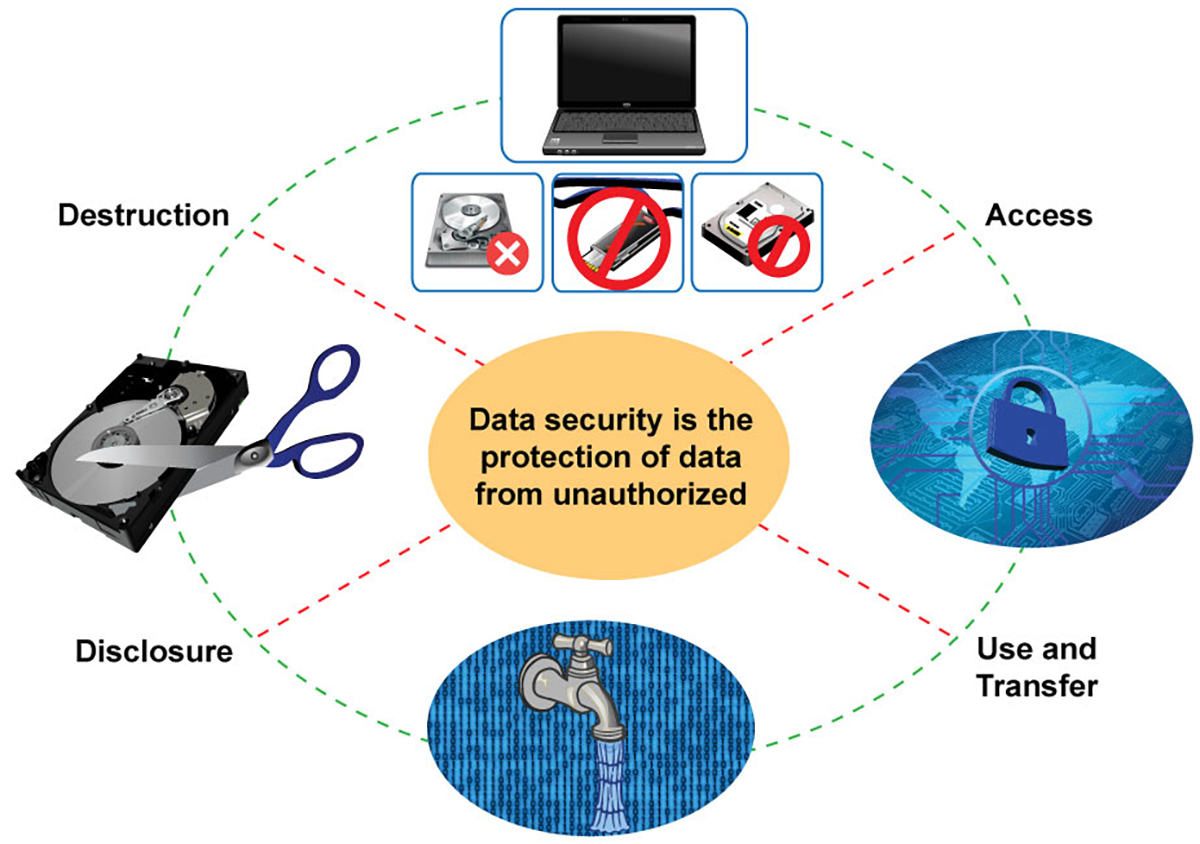Top Tips for Ensuring Secure Data Destruction in Your Cyber Security Strategy
Top Tips for Ensuring Secure Data Destruction in Your Cyber Security Strategy
Blog Article
The Necessary Nature of Information Destruction in Upholding Computer Security Services and Protecting Against Unauthorized Accessibility
In a period where information violations and identification theft are increasingly common, the importance of efficient information damage can not be overstated. Organizations must acknowledge that the failure to correctly dispose of sensitive information postures not only lawful and financial threats however additionally a prospective disintegration of customer count on. Various methods, from information wiping to physical devastation, offer as vital safeguards versus unauthorized accessibility. Understanding the effects of information damage practices and conformity with regulations elevates important concerns concerning the competence of current strategies and their lasting viability in the face of advancing risks.
Relevance of Data Devastation
In a significantly electronic globe, the value of information destruction can not be overemphasized. As organizations accumulate large amounts of delicate details, the prospective repercussions of falling short to effectively handle and dispose of that data come to be increasingly extreme. Information breaches, identification theft, and business reconnaissance posture considerable hazards, emphasizing the requirement of reliable data damage practices.

In addition, as innovation evolves, so too do the methods through which malicious stars seek to exploit sensitive details. Organizations should continue to be positive and vigilant in their data damage methods to guard against these progressing threats. By prioritizing data damage, firms not only shield their possessions however additionally foster depend on among clients and stakeholders, showing a dedication to liable information monitoring and safety techniques.
Methods of Effective Data Damage
To make sure the total and permanent damage of delicate information, companies can employ a selection of reliable approaches customized to their details needs. One of the most typical techniques is information cleaning, which entails making use of specialized software to overwrite existing data multiple times, making recovery practically difficult. This is specifically useful for hard disks and solid-state drives, where standard deletion approaches are insufficient.
Another effective method is degaussing, which makes use of solid electromagnetic fields to interfere with the magnetic domain names on storage space media, rendering the information irretrievable. This approach is particularly matched for magnetic storage space gadgets, such as tape drives and hard drives.
Physical destruction is additionally a practical option, entailing the shredding, squashing, or incineration of storage space devices. This method guarantees that information can not be recouped, making it ideal for companies dealing with highly delicate info.

Compliance With Information Security Regulations
Organizations must not just concentrate on efficient data damage approaches but also ensure compliance with information defense policies that govern exactly how delicate details is dealt with and taken care of. Adhering to these laws is vital for protecting individual information and keeping consumer trust. Regulations such as the General Data Protection Law (GDPR) in the European Union and the Medical Insurance Portability and Accountability Act (HIPAA) in the United States impose strict guidelines on data management, which include needs for the protected disposal of sensitive information.
To attain conformity, companies have to implement extensive data destruction policies that straighten with these lawful frameworks. This consists of identifying information that requires devastation, developing methods for protected methodsâEUR" such as shredding physical media or utilizing software application that satisfies industry requirements for data wipingâEUR" and preserving detailed records of destruction tasks. Regular audits must be carried out to make certain adherence to these policies and to determine any kind of potential locations for enhancement.
Failure to adhere to information defense policies can lead to considerable lawful implications, including substantial fines and damages to a company's credibility. Integrating conformity into data damage techniques is not only a legal commitment but also a vital component of a robust info protection strategy.
Effects of Poor Data Handling
Poor information handling can bring about extreme consequences that extend past prompt functional setbacks. Organizations might deal with considerable economic losses as a result of data violations, which typically lead to best site costly remediation initiatives, lawful costs, and regulative fines. These economic effects can hinder and stress sources development, inevitably impacting a company's lower line.
In addition, inadequate information handling can severely harm an organization's reputation. Customers, companions, and stakeholders might shed rely on an entity that falls short to safeguard sensitive info, leading to decreased client loyalty and potential loss of organization chances. This erosion of trust fund can take years to restore, if it can be brought back at all.
Furthermore, organizations can encounter legal implications developing from non-compliance with information defense regulations. Such offenses may lead to penalties and investigations, compounding the financial concern and further staining the company's photo.
In the realm of cybersecurity, inadequate data administration methods can create susceptabilities that make systems extra susceptible to unapproved access and cyberattacks. navigate to these guys Inevitably, these effects highlight the essential relevance of carrying out durable data handling procedures to safeguard sensitive information and keep organizational integrity.
Finest Practices for Secure Information Disposal


Firstly, data should be identified according to its level of sensitivity. Sensitive details requires more extensive disposal techniques, such as shredding physical documents and using sophisticated software program for electronic data wiping. Utilizing qualified information devastation services makes certain compliance with industry regulations and standards.
Second of all, companies need to apply a data disposal policy that mandates routine audits. This plan must detail the treatments for information retention and devastation, ensuring that obsolete data is gotten rid of immediately and safely. Training employees on these protocols is important to cultivating a society of security awareness.
Finally, preserving comprehensive records of disposed data improves responsibility and offers a clear audit trail. This documentation should include the type of data damaged, the technique used, and the go to this web-site date of disposal.
Verdict
Adopting robust approaches such as data cleaning, degaussing, and physical devastation, together with conformity with regulations like GDPR and HIPAA, is necessary for securing delicate information. Ignoring appropriate data disposal methods can lead to extreme consequences, including information breaches and legal consequences.
In an era where data violations and identity theft are progressively prevalent, the relevance of effective data damage can not be overemphasized. data destruction. Information breaches, identity theft, and business reconnaissance present considerable threats, underscoring the need of effective data destruction techniques
Conformity with guidelines such as GDPR and HIPAA requireds that companies implement stringent data defense actions, consisting of the protected destruction of data at the end of its lifecycle.
By prioritizing data damage, business not just safeguard their assets but also foster depend on amongst customers and stakeholders, showing a dedication to accountable data administration and security techniques.
Organizations must not just focus on effective data damage techniques however likewise make certain conformity with information protection guidelines that regulate exactly how delicate info is managed and disposed of.
Report this page